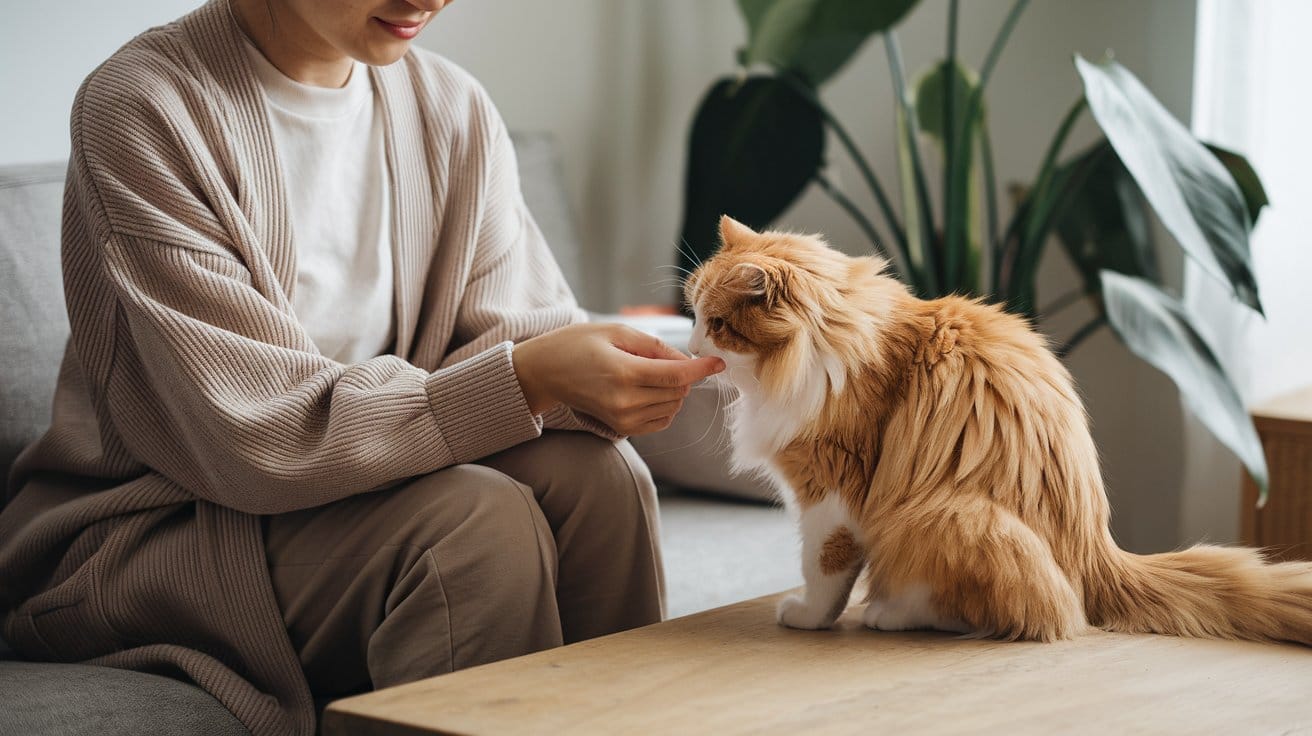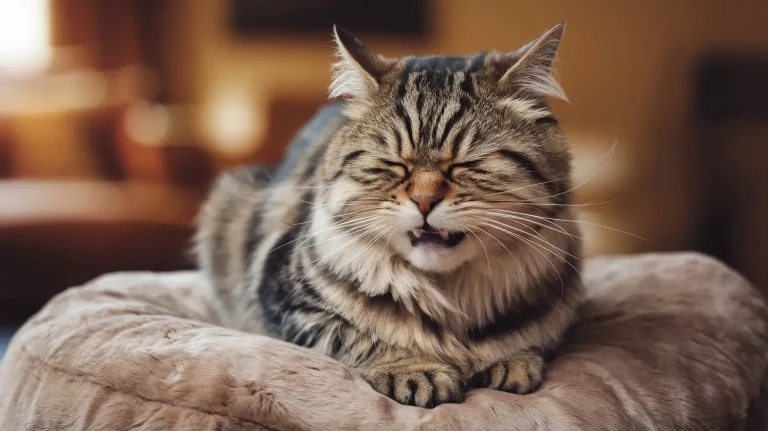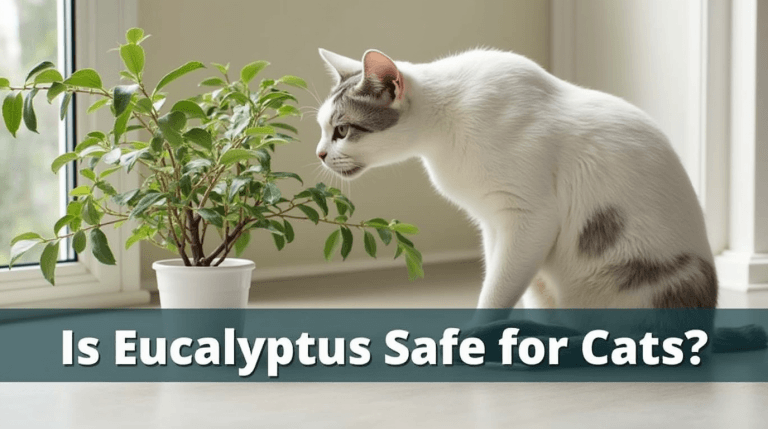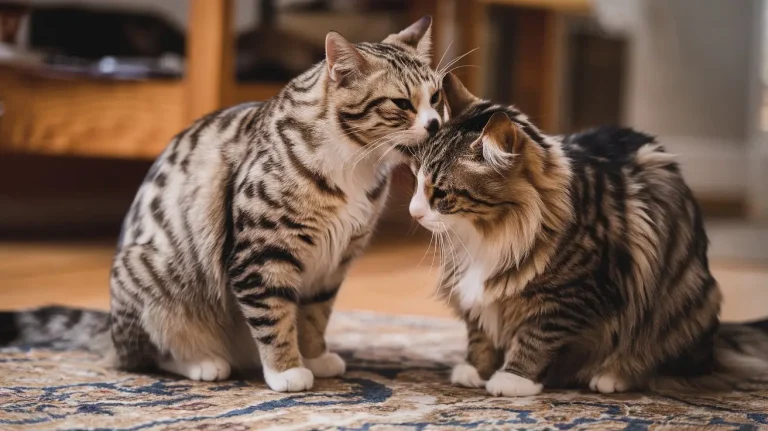Why Do Cats Lick You? Decoding the Secrets of Feline Affection ,Picture this: you’re sitting on the couch, unwinding after a long day, and your cat hops up beside you. Suddenly, they lean in close and start licking your hand. At first, it feels endearing, like a sweet gesture of love. But as the licking continues, you begin to wonder: why do cats lick you? Is it a sign of affection, a quirky habit, or something more complex? Let’s delve into this fascinating behavior and uncover what it reveals about your feline friend.
Table of Contents
Understanding Cat Behavior: The Basics of Licking
Cats are complex creatures with unique ways of expressing themselves. One of these expressions is licking, a behavior rooted in their instincts and emotions. Here’s a breakdown of the primary reasons:
Licking as a Form of Affection
When your cat licks you, it’s often their way of showing love and trust. Cats groom their littermates and mothers as kittens, creating bonds that last a lifetime. By licking you, your cat is treating you as part of their family.
- Trust Indicator: Cats typically only groom those they feel safe around.
- Release of Endorphins: The act of licking helps cats feel relaxed and connected.
- Bonding Activity: It’s their equivalent of a warm embrace.
Marking Territory
Cats are territorial by nature, and licking is one way they claim ownership. When a cat licks you, they’re leaving their scent behind—a clear message to other animals that you belong to their social group.
- Scent Transfer: Cats have scent glands in their mouths that mark you as theirs.
- Social Bonding: This behavior strengthens your relationship and affirms their sense of security.
Grooming and Hygiene
Cats are known for their meticulous grooming habits. When your cat licks you, it’s often an extension of their grooming routine.
- Shared Grooming: In a multi-cat household, cats groom each other to build trust.
- Sign of Care: Licking you may mean they see you as needing a little sprucing up.
Other Reasons Why Cats Lick You
Not all licking is purely affectionate. Sometimes, there are deeper motivations behind this behavior.
Stress or Anxiety
Cats may lick excessively when they’re stressed or anxious. This self-soothing behavior helps them cope with changes in their environment.
- Triggers: Moving to a new home, introducing a new pet, or loud noises.
- Calming Mechanism: Licking releases calming chemicals in their brain, much like humans fidgeting.
- Signs to Watch For: Overgrooming, bald patches, or incessant licking could indicate stress.
Seeking Salt and Taste Sensation
Did you know that your cat might be licking you because they’re attracted to the taste of your skin? Human skin, especially after sweating, contains salt that cats find intriguing.
- Curiosity: Cats are naturally curious about different tastes and textures.
- Hydration Check: Ensure your cat has access to fresh water at all times.
Medical Issues to Watch For
Excessive licking can sometimes indicate underlying health concerns. If your cat’s behavior seems out of the ordinary, it’s worth investigating further.
- Allergies or Skin Conditions: Redness, swelling, or irritation might prompt your cat to lick you more.
- Consult a Vet: Persistent licking could be a symptom of pain or discomfort.
How to Respond When Your Cat Licks You
Understanding why your cat licks you is just the first step. Knowing how to respond appropriately ensures a healthy and happy relationship.
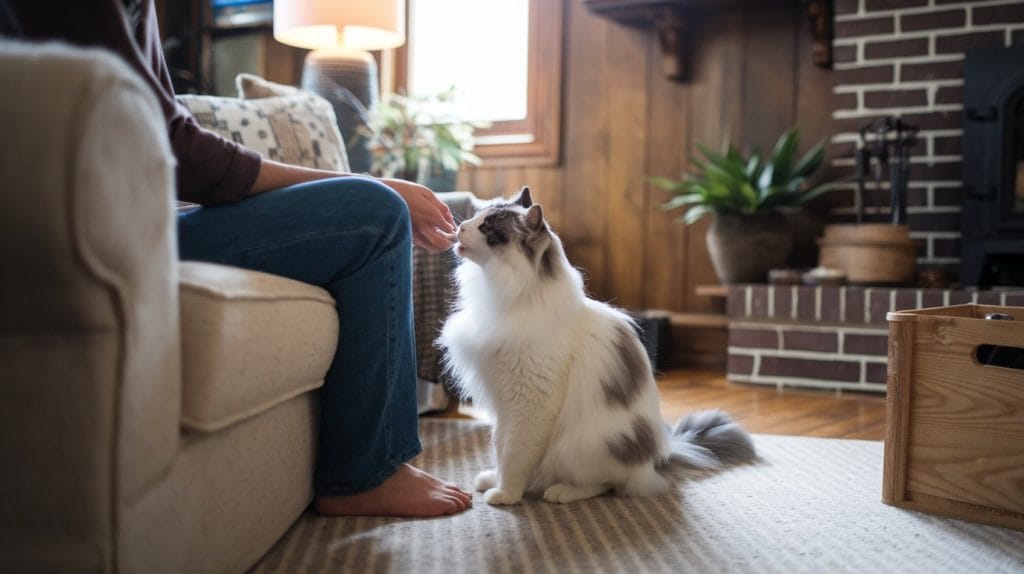
Encouraging Healthy Interaction
- Positive Reinforcement: Praise and reward your cat when they exhibit gentle, affectionate behavior.
- Provide Alternatives: If your cat’s licking becomes excessive, offer toys, scratchers, or other engaging activities to redirect their focus.
Setting Boundaries
While most cat owners find licking endearing, it’s okay to set boundaries if it becomes uncomfortable.
- Gentle Redirection: Move your hand away and offer a toy or treat.
- Avoid Punishment: Never scold your cat for licking, as this can damage their trust in you.
Quick Comparison Table: Reasons Why Cats Lick You
| Reason | Explanation | Recommended Action |
| Affection | Your cat feels close to you and expresses love. | Enjoy the bonding moment. |
| Marking Territory | Cats use licking to claim you as their own. | Let them feel secure. |
| Grooming Behavior | Reflects their instinctive grooming habits. | Provide grooming tools. |
| Stress/Anxiety | Cats lick to self-soothe in stressful situations. | Reduce stressors and provide stimulation. |
| Curiosity/Taste | Your skin might taste salty or interesting to them. | Ensure proper hydration and nutrition. |
| Medical Issues | Could indicate allergies, irritation, or discomfort. | Consult a veterinarian if persistent. |
FAQs About Why Do Cats Lick You? Decoding the Secrets of Feline Affection
Why do cats lick you and then bite you?
This behavior can be a mix of affection and play. Often, it’s their way of showing excitement or overstimulation. Keep an eye on their body language for clues.
Is it safe for cats to lick humans?
Yes, it’s generally safe. However, avoid letting them lick open wounds to prevent bacterial transmission.
How can I tell if my cat’s licking is excessive?
Frequent or obsessive licking, especially with signs of hair loss or irritation, may indicate stress or a medical issue. Consult your veterinarian for advice.
Conclusion
When your cat licks you, it’s their way of communicating love, trust, and sometimes a little curiosity. By understanding the reasons behind this behavior, you can strengthen your bond and ensure your cat’s emotional and physical well-being. If your feline friend’s licking becomes excessive, take the time to observe their environment and behavior—they might be trying to tell you something important.
Ready to deepen your connection with your cat? Share your experiences or tips for managing quirky cat behaviors in the comments below. And don’t forget to give your furry companion an extra cuddle today—after all, they’re showing you their love in their own special way.

